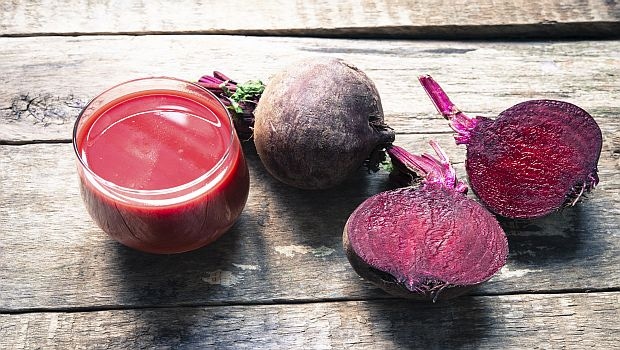Beet juice is making a name for itself within the sports-nutrition category. And now, with the results from a new study published in Circulation: Heart Failure, beet juice may also be good for muscle dysfunction in patients with heart failure.
October 1, 2015

Beet juice is making a name for itself within the sports-nutrition category. And now, with the results from a new study published in Circulation: Heart Failure, beet juice may also be good for muscle dysfunction—i.e., muscle strength, velocity and power—for patients who have suffered from heart failure. What researchers have figured out is the muscle dysfunction may be partially due to decreased nitric oxide (NO) bioavailability. So in the current studies, they examined whether ingestion of inorganic nitrate (NO3-) would increase NO production and improve muscle function in patients with heart failure due to systolic dysfunction using a double blind, placebo-controlled, randomized crossover design (July 15, 2015).
After fasting overnight, subjects drank beetroot juice containing or devoid of 11.2 mmol NO3-. Two hours later, dietary NO3- increased breath NO by 35 to 50 percent via 9-percent and 11-percent increases in peak knee extensor power at the two highest movement velocities tested. Maximal power was therefore greater after dietary NO3- intake. Calculated maximal velocity of knee extension was also higher following NO3- ingestion. Blood pressure was unchanged, and no adverse clinical events occurred.
The results of this pilot study show that acute dietary NO3- intake enhanced NO bioavailability and muscle power in patients with systolic heart failure. “Larger-scale studies should be conducted to determine whether the latter translates into an improved quality of life in this population," the researchers noted.
You May Also Like




.png?width=800&auto=webp&quality=80&disable=upscale)